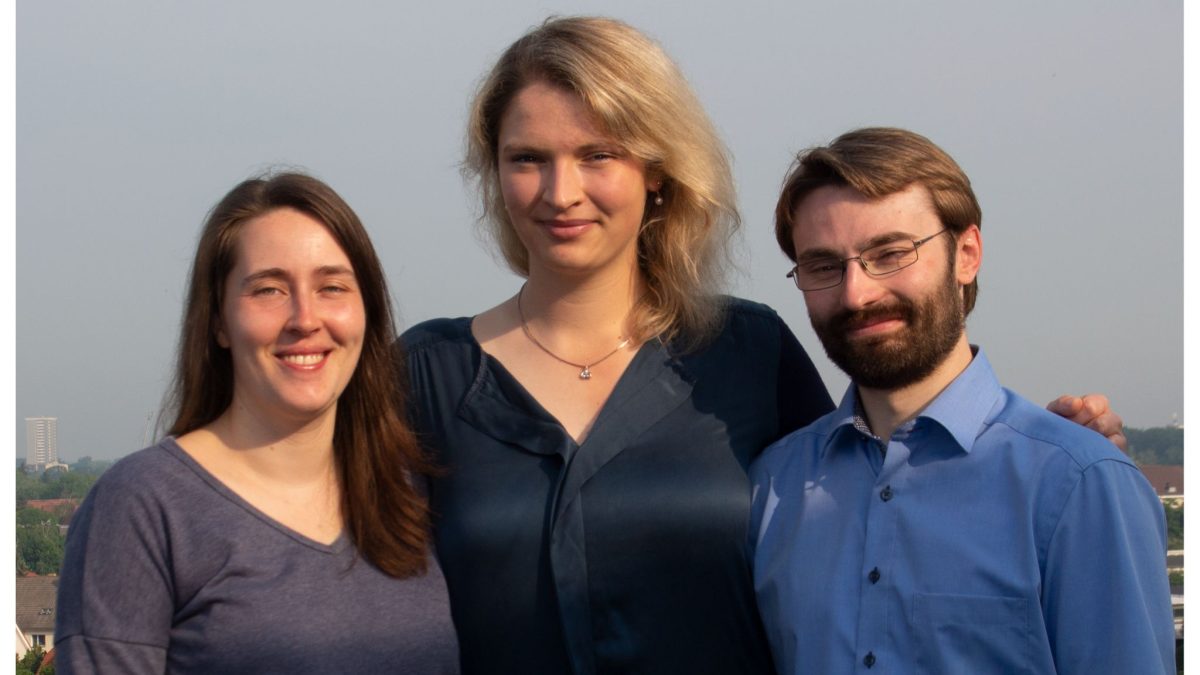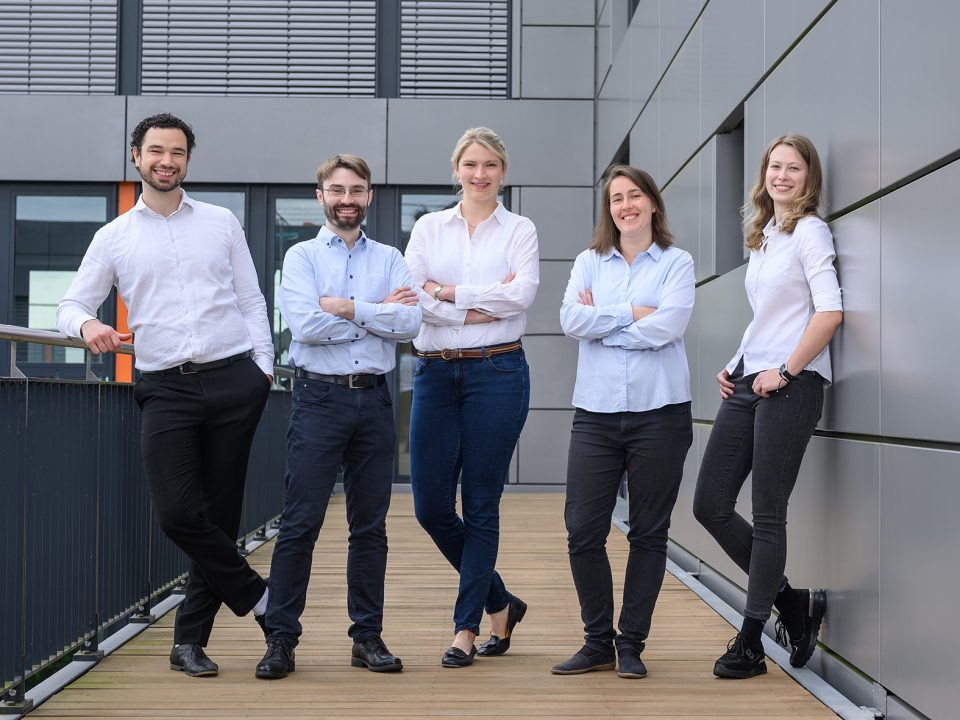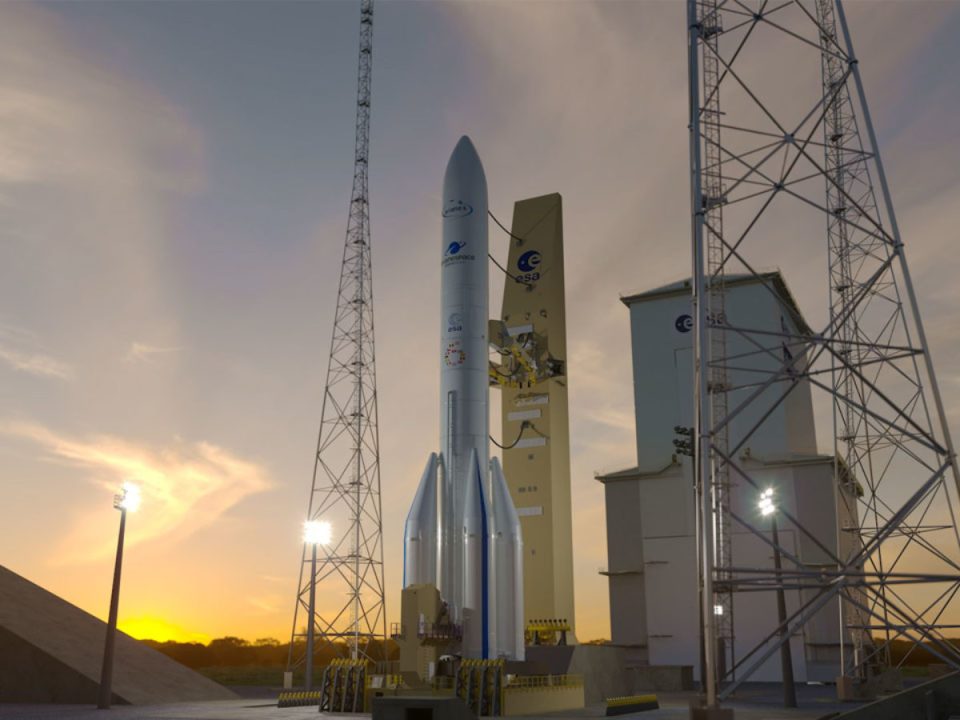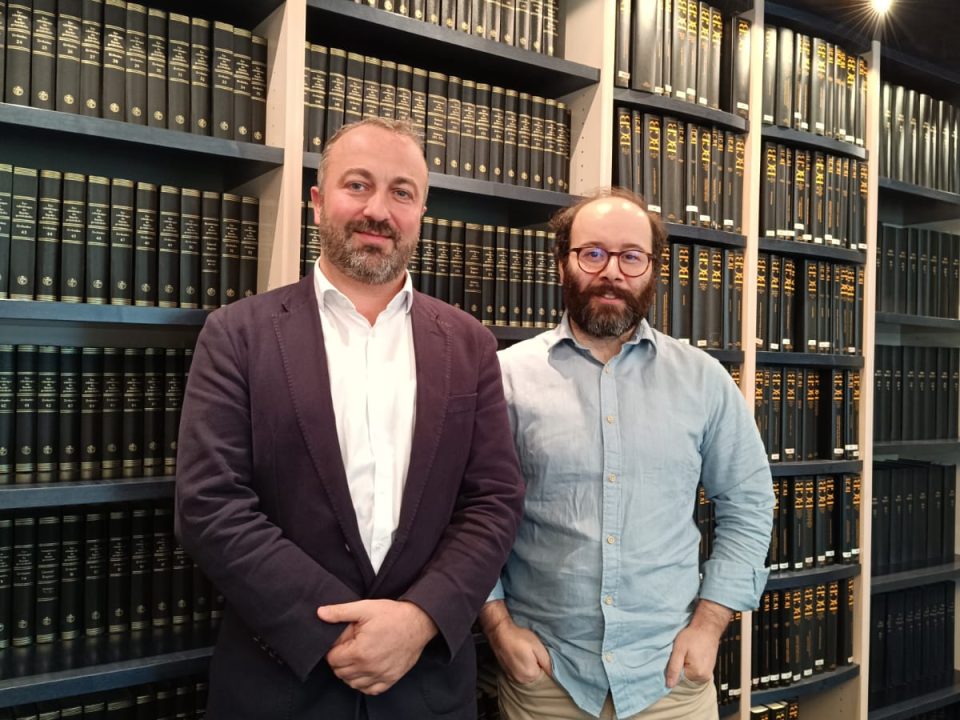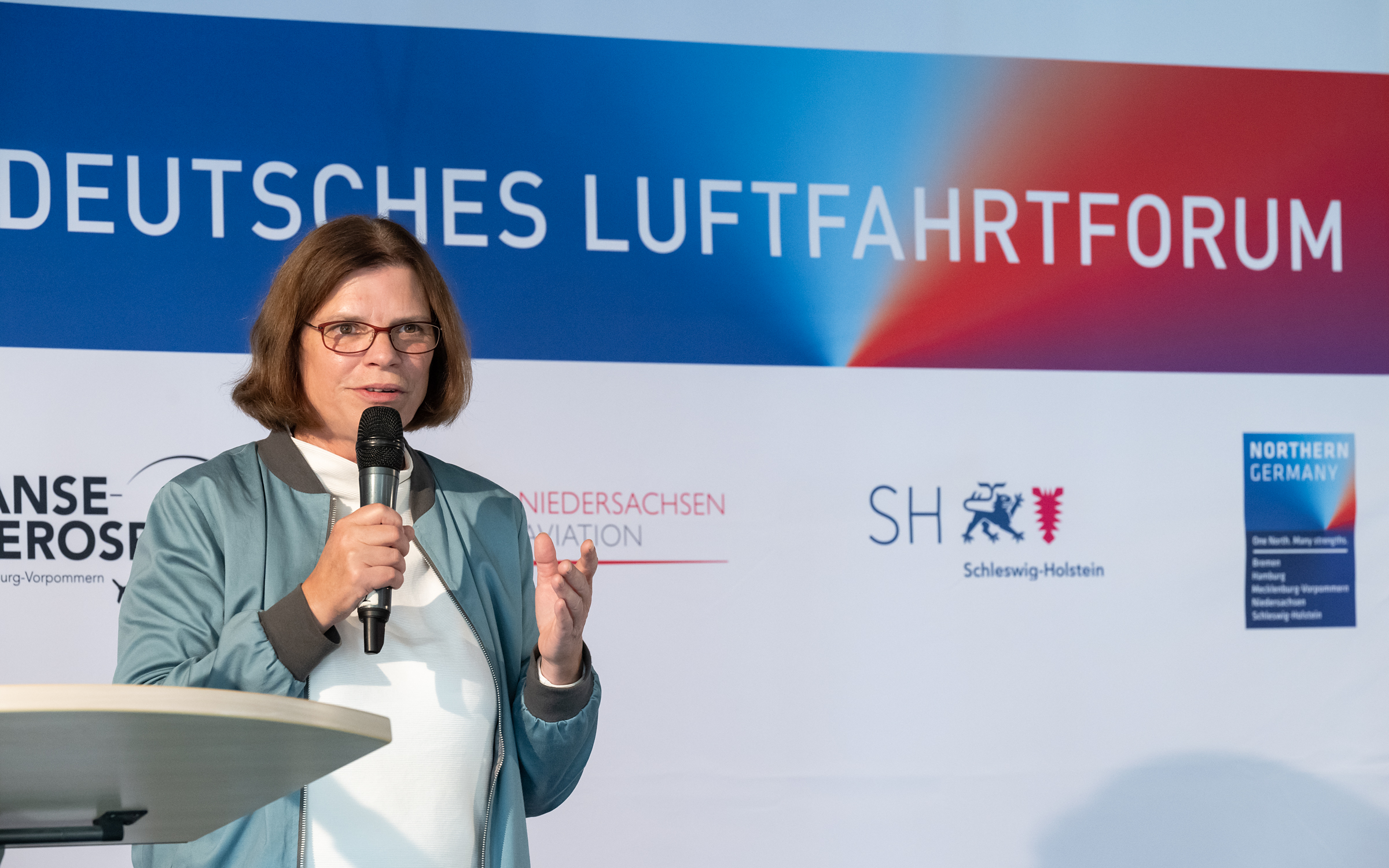
LEADERS FROM THE AVIATION INDUSTRY COME TOGETHER AT THE 7TH NORTHERN GERMAN AVIATION FORUM
06.10.2022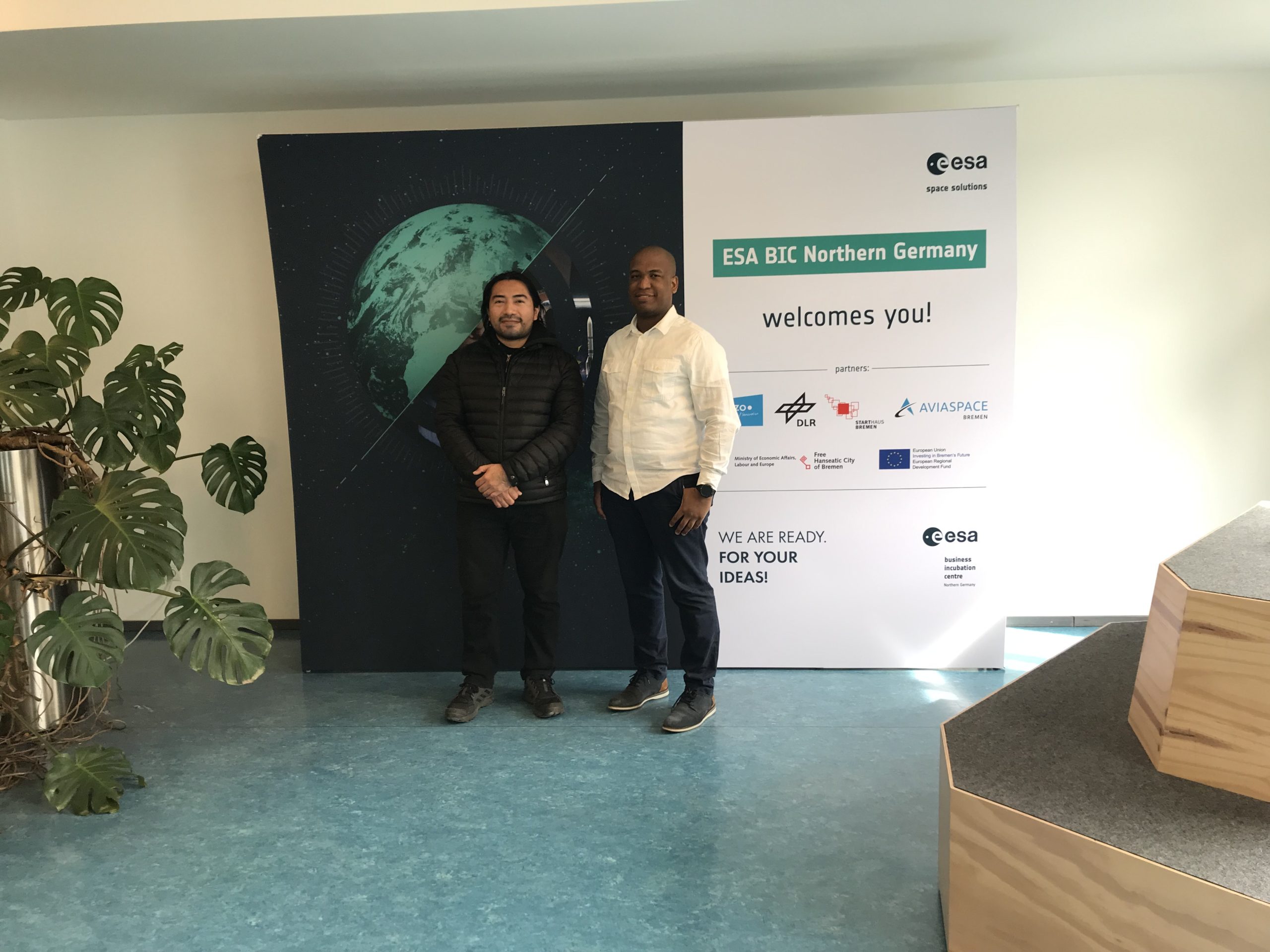
Plasma: How Blue Orbit Space Systems is Improving Satellite Operations
22.10.2022In May 2022 ESA BIC Northern Germany welcomed a new innovative space start-up: PhySens GmbH.
PhySens Cofounders Katharina Ostaszewski and Philip Heinisch used to work together as scientists at the Institute of Geophysics and Extra-terrestrial Physics at the TU Braunschweig, focusing on the ESA Rosetta mission. It was here they realised that their new methods for magnetic field data processing which they used for example to determine exactly where the Rosetta lander was could also have significant applications in industry.
They set about testing their new technology in industry environments. Henriette Struckmann, who played tennis with Katharina at the time and was in the process of finishing her business administration degree, found the two scientists’ work fascinating and set about helping during the testing phase, first on a model railway and then finally on a small private railway owned by an acquaintance. At this point the three discovered they worked well together, and that Henriette’s business background perfectly complemented the scientists’ work. Towards the end of 2020 Henriette officially joined the founder team.
In June 2020, the PhySens team was awarded an EXIST start-up grant of €100,000 from the Federal Ministry for Economic Affairs and Energy and the European Social Fund (ESF) of the European Union and in January 2021 PhySens GmbH was officially born.
Measuring electricity without disturbing operation
The PhySens team quickly found various industry applications for their technology. The first was the monitoring of electrical devices and equipment, similar to their work on the Rosetta mission. Normally, electricians regularly check the power consumption to monitor machines and if a device consumes more power than expected, something is usually defective. This requires opening the circuit and connecting a measuring device. A time-consuming and potentially dangerous intervention. To alleviate these problems, PhySens is developing a contactless sensor that can simply be placed onto the cable and measure currents. They are low risk and would not disturb operation.
Regulating electricity flow between charging stations
Electromobility is the future but charging electric vehicles all at the same time at charging stations from different manufacturers can lead to blackouts. This is because these charging stations are unable to communicate with each other or the grid and regulate electricity flow. Based on their electric current sensing technology, PhySens has developed a plug which is connected between the different charging stations and the car to enable communication between the different charging points, the cars and the grid. This ensures that the electricity is effectively distributed, each car can charge as fast as possible, and blackouts are avoided.
PhySens is also working on deploying these sensors to measure e-car electricity usage for accounting purposes. Currently there is no practical solution for employees with company e-cars to measure the amount of electricity their car consumes, as distinct from their domestic usage. Companies usually reimburse their employees with a flat payment for the electricity. PhySens technology can accurately measure e-car electricity usage, which will hopefully make e-car ownership more financially attractive in the future.
Optimising train travel
Optimising the usage of train tracks is also something the PhySens team is seeking to rectify with their technology. After experimenting with model railways and testing on closed tracks they confirmed that their sensors and data evaluation methods make it possible to monitor railway infrastructure, particularly points and level crossings. This allows train companies to identify problems at the earliest stage before tracks have to be closed unexpectedly. They have now graduated from model train tracks to real track infrastructure and are currently testing their sensors with the Deutsche Bahn.
Industry recognition
Just after the official founding of the company in 2021, PhySens GmbH took part in the Innospace Masters competition. They entered two submissions and won first prize in the ESA BIC Challenge with their electricity sensors, the DB Netz AG Challenge with their point sensors and won the overall competition. As part of this competition, they also won support from the ESA BIC North Germany.
And their success has not stopped there. The team has just found out that they are among the top seven companies which entered the EIT Urban mobility competition. As part of their prize, they have won the chance to test their e-mobility plug in Barcelona with an international industry partner. In addition, the company has also made significant progress in applying for and registering their patents.
“We couldn’t be more thrilled” says Cofounder Henriette Struckmann. “Alongside our success in these industry contests, we are also really proud that we are so far along with our patents already. We have invested so much time in these so far and this legal protection will play a vital role in our business going forward.”
A magnetic future
So how does the future look for PhySens? “We want to work even harder but keep having fun,” explains Henriette Struckmann. “We hope that in five to six years’ time, we will have significantly grown our dedicated staff team. We are currently focusing on our products but hopefully in the near future we can look into our marketing and positioning. We hope that we can mitigate supply chain issues and start production, so there might even be a PhySens consumer product on the market in the foreseeable future.”
About ESA BIC Northern Germany
The Incubation Centre of the European Space Agency in Northern Germany (ESA BIC Northern Germany) is headquartered jointly with the Bremen aeronautics and space industries association AviaSpace Bremen at the BITZ, the largest innovation and technology centre for high-tech companies and startups in Bremen. The ESA BIC Northern Germany brings new startup opportunities to the region and thus strengthens the aeronautics and space sector in the German federal state of Bremen. AviaSpace Bremen supports the incubatees with its network, public relations work, and targeted coaching not only during the incubation period, but also afterwards as alumni. Starthaus is the central point of contact in the Bremen startup ecosystem and supports the startups on all issues relating to business development and financing. The ESA BIC Northern Germany is managed by Anwendungszentrum GmbH Oberpfaffenhofen (AZO), an international networking and branding company for the European space programmes that also manages ESA BIC Bavaria with three locations in southern Germany.
Since 2021, ESA BIC Northern Germany has also been offering its service to space-related startups in Schleswig-Holstein. The Technikzentrum Lübeck with GATEWAY49, AviaSpace Bremen and AZO jointly operate this extension of ESA BIC Northern Germany. There are also plans to extend ESA BIC Northern Germany to the northern German federal states of Hamburg, Lower Saxony, Mecklenburg-Western Pomerania and Berlin-Brandenburg.





